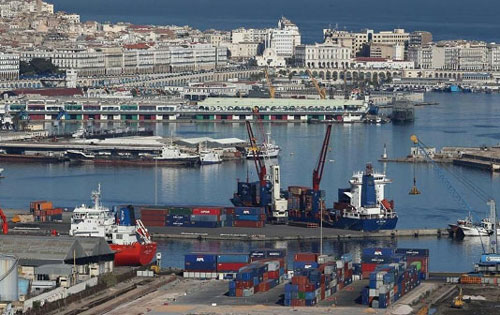Algiers
Algeria has launched Islamic finance products in a bid to attract money from the informal market, but bankers warn it will take more to fix the country’s struggling economy.
Falling oil prices and the coronavirus pandemic have battered the North African country, triggering alarm bells among officials and experts.
The International Monetary Fund (IMF) forecast that Algeria’s economy will shrink 5.2 percent this year. Prime Minister Abdelaziz Djerad has warned of an “unprecedented economic situation,” and experts have estimated unemployment at nearing 15 percent.
In Algeria, Africa’s largest nation and home to 43 million people, most transactions are done in cash circulating outside the formal banking sector, said professor Mohamed Boudjelal, an expert on Islamic finance.
Many Algerians “turn their nose up” at conventional banking, Boudjelal said. Some Muslims believe that the traditional banking system is incompatible with their faith.
Islamic finance — the provision of financial services in accordance with religious laws — is a fast growing sector that has been adopted in many Muslim countries. The industry is based on shared profit and loss, while earning interest is banned as “usury.” Funds are also blocked from investing in companies associated with tobacco, alcohol, pork or gambling.
Algeria is hoping the new products could woo new investors into the market, following the success of Islamic finance products over the past decade in other countries, notably in the Gulf and Malaysia. The country’s neighbors have already rolled out similar schemes.
In Tunisia, Islamic finance has operated in the private sector since the 1980s, although the sector remains modest, while in Morocco it began in 2017, though it has recorded net losses it says are due to initial start-up costs.
But Algeria hopes to tap into the significant revenues of the informal market, estimated to be as much as $30-35 billion, according to Abderahmane Benkhalfa, a former minister of finance and ex-head of the banking association.
“It is not only necessary to draw these resources, but to inject them into banks in order to bolster the economy,” Benkhalfa said. Earlier this month, state-run National Bank of Algeria offered nine Islamic financial services, receiving a certificate from Muslim clerics ensuring they were compatible with Islamic law.
Only two other private banks, subsidiaries of the Bahrain-based Baraka Bank and Al Salam Bank, offer Islamic finance services in Algeria. However, Algeria’s other banks — all state-run — are now expected to follow suit by the end of the year. Most foreign banks are also planning to sell Islamic finance products too.—Arab News










